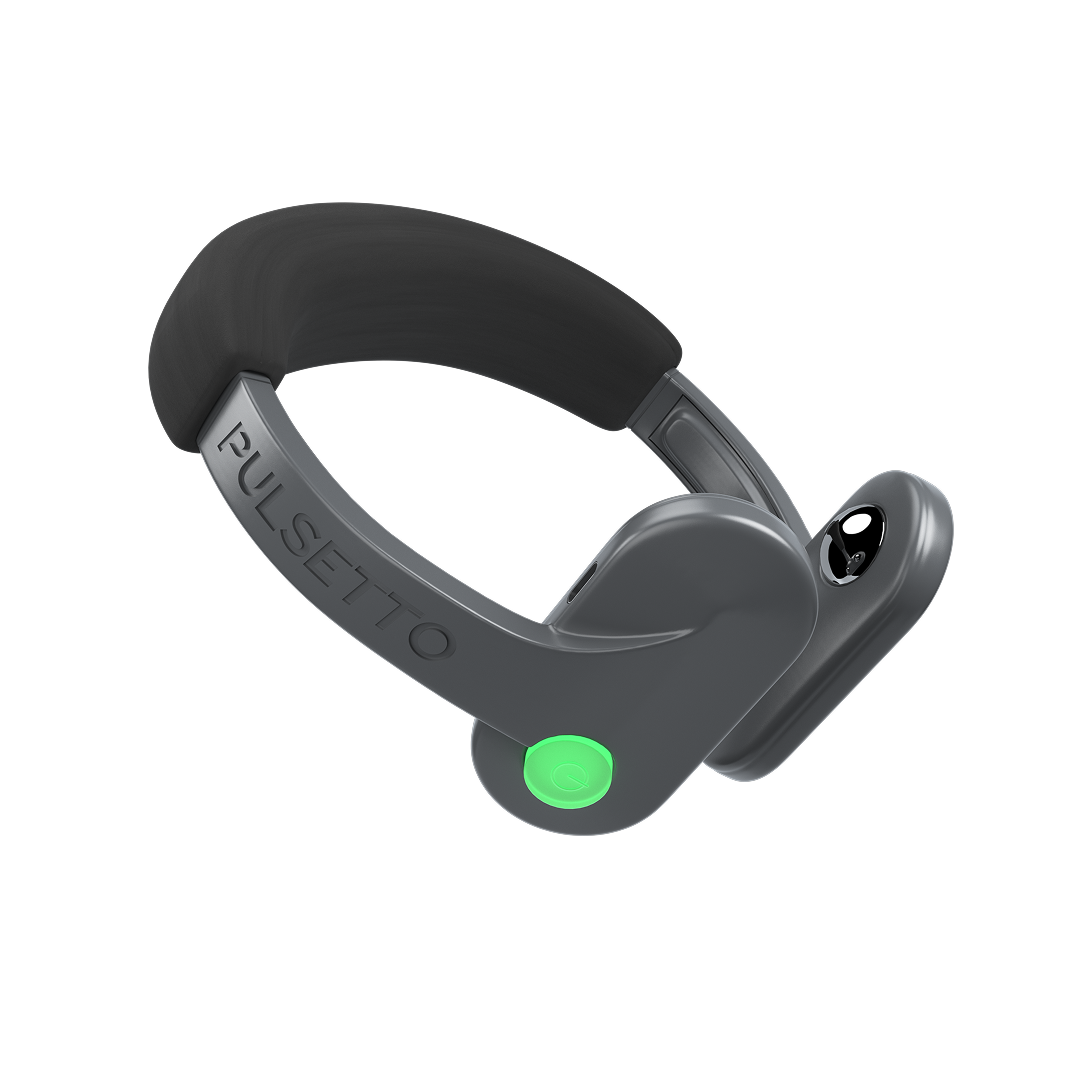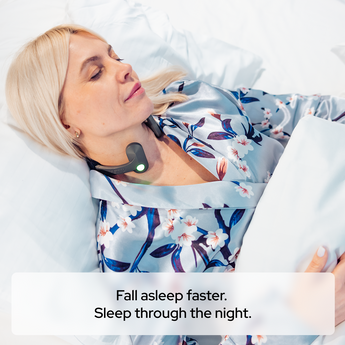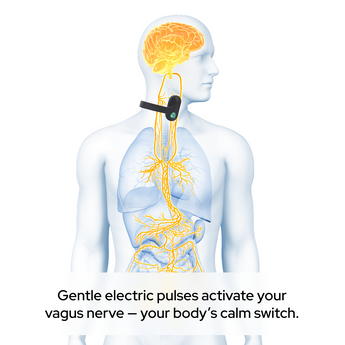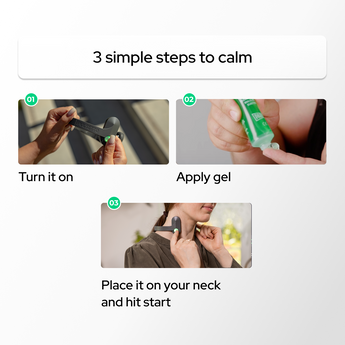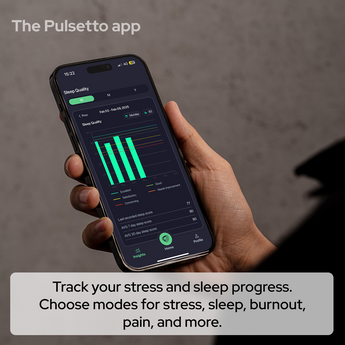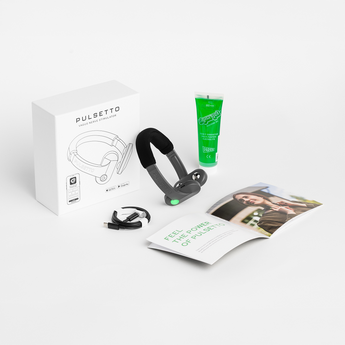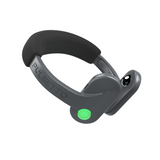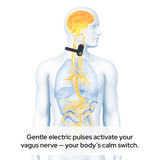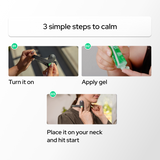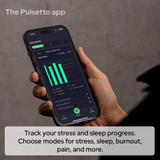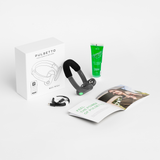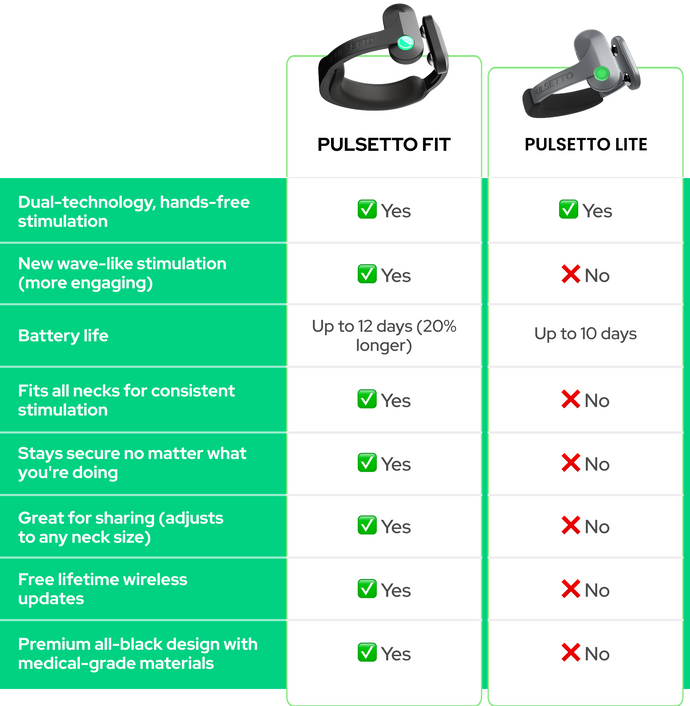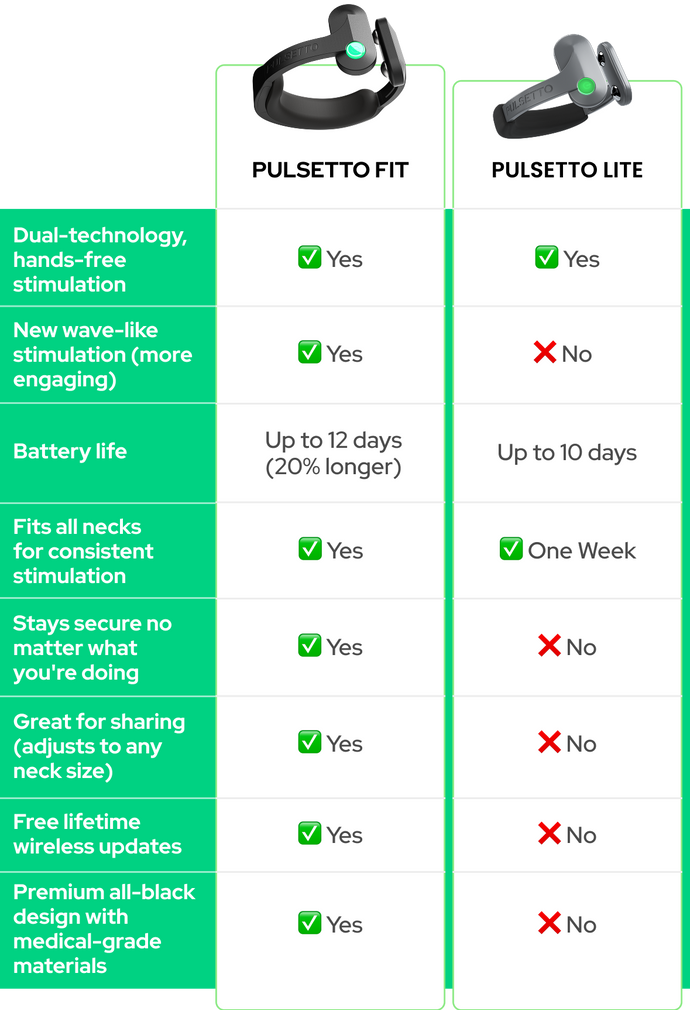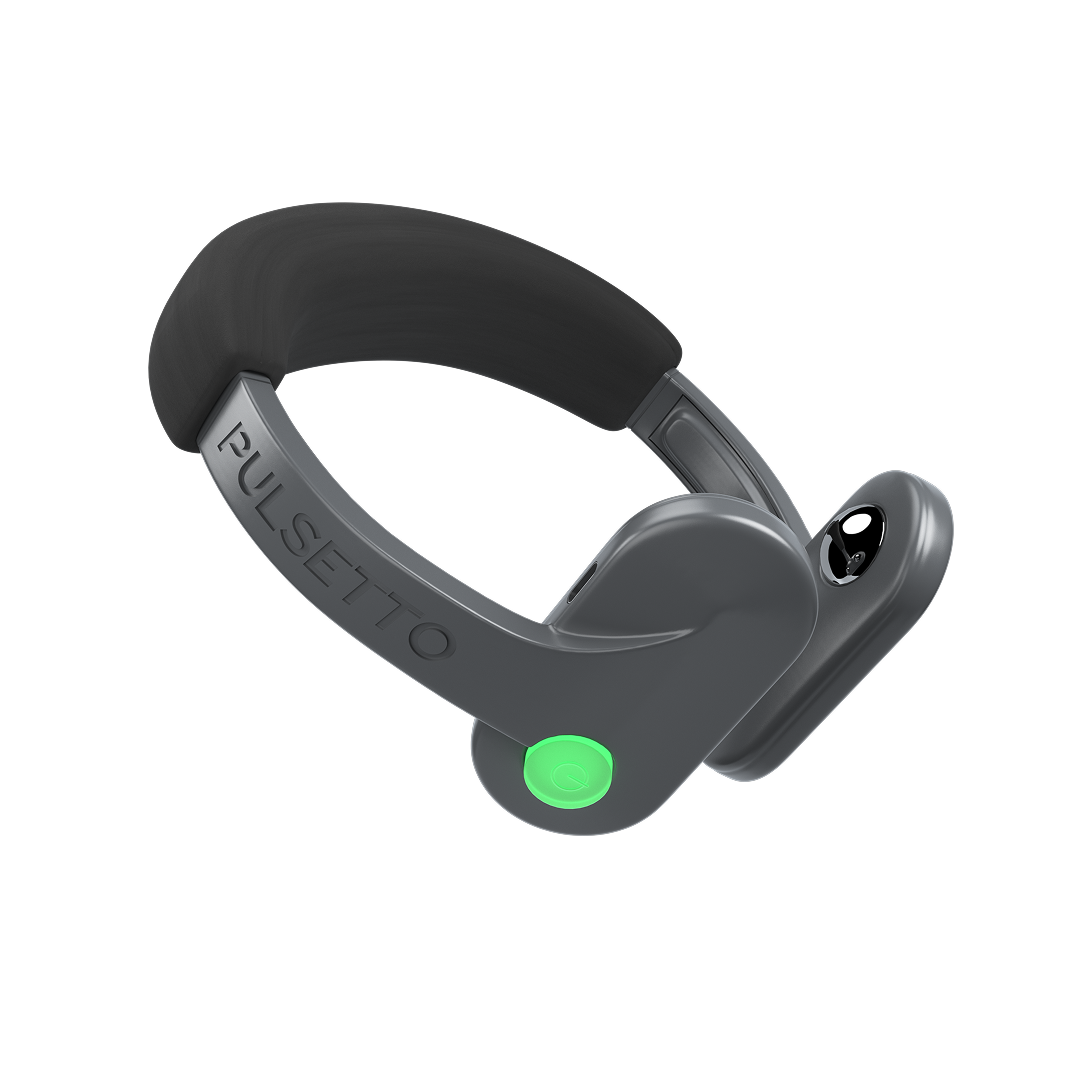Exercise and HRV
Importance of Regular Exercise
Regular physical activity strengthens the parasympathetic (rest and digest) branch of the autonomic nervous system (ANS), which helps counterbalance the sympathetic (fight or flight) branch - and this enables your body to respond efficiently to stressors and recover quickly.
Regular physical activity promotes cardiac efficiency by increasing stroke volume (the amount of blood pumped per heartbeat) and reducing resting heart rate. In simple terms, this means the heart doesn't have to work as hard to maintain circulation, which is beneficial for HRV. Exercise also improves blood flow and reduces arterial stiffness, ensuring a more stable and responsive cardiovascular system, which, in turn, also positively influences HRV.
And that’s not all - exercise increases the release of endorphins and other neurochemicals that enhance mood and promote relaxation.
Best Exercises for HRV
-
Aerobic Exercises: Running, cycling, and swimming.
-
Strength Training: Weightlifting and resistance exercises.
-
Flexibility Exercises: Yoga and Pilates.
Avoiding Overtraining
While regular exercise is beneficial, overtraining can have the opposite effect. Pushing your body too hard without adequate rest can lead to fatigue and a lower HRV. When you overtrain, your body stays in a stressed state without enough recovery time, causing stress hormones to stay high. This stress makes your heart work harder and reduces HRV, meaning your body isn't handling stress as well as it could.

Flexibility exercises like yoga and Pilates can help you increase your HRV.
Nutrition and Diet
Foods to Boost HRV
A diet rich in whole foods, such as fruits, vegetables, whole grains, lean proteins, and healthy fats, provides essential nutrients that support heart health and improve HRV. Including these foods in your diet can lead to better heart rate variability and overall health:
-
Fatty Fish: Salmon, mackerel, and sardines are rich in omega-3 fatty acids, which are known to improve heart health and HRV.
-
Leafy Greens: Spinach, kale, and Swiss chard are high in B vitamins, which are crucial for nerve function and stress management. Antioxidants protect your heart and vascular system from oxidative stress.
-
Fermented Foods: Yogurt, kefir, and sauerkraut contain probiotics that support gut health, which is closely linked to the autonomic nervous system.
-
Nuts and Seeds: Almonds, walnuts, and flaxseeds are excellent sources of healthy fats and magnesium, both of which contribute to a higher HRV.
And what should you avoid? Processed foods, sugars, and unhealthy fats all negatively affect HRV - these foods can lead to increased inflammation, higher blood pressure, and elevated cholesterol levels, all of which strain the cardiovascular system. Excessive intake of sugar and refined carbohydrates can cause rapid spikes and crashes in blood sugar levels, leading to greater stress on the body and a more dominant sympathetic nervous system response.
Role of Hydration
When you are well-hydrated, your blood volume is optimized, which helps your heart pump blood more effectively. Dehydration, on the other hand, leads to a decrease in blood volume, making the heart work harder to circulate blood. This additional strain activates the sympathetic (fight or flight) branch of the autonomic nervous system (ANS), leading to reduced HRV. Dehydration also disrupts electrolyte balance, which negatively impacts heart function.
To stay hydrated:
- Drink at least eight glasses (8-ounce or 237 ml) of water daily.
- Include hydrating foods like cucumbers, watermelon, and oranges in your diet.
- Avoid excessive caffeine and alcohol, as they can dehydrate you.

A healthy diet, rich in vegetables and omega-3 fatty acids, supports your nervous system.
Supplements for Increasing HRV
Omega-3 Fatty Acids
Omega-3 fatty acids are well-known for their heart health benefits - they reduce inflammation and improve the function of the autonomic nervous system.
B Vitamins
B vitamins, particularly B6, B12, and folic acid, play an important role in nerve function and stress management - they help your body produce neurotransmitters that regulate mood and stress responses.
Probiotics
A healthy gut is essential for a well-functioning autonomic nervous system, which in turn improves HRV. Look for a high-quality probiotic supplement with multiple strains of bacteria.
Sleep Quality and HRV
Importance of Good Sleep
During sleep, especially in the deep and REM (rapid eye movement) stages, the body undergoes critical processes such as muscle repair, memory consolidation, and hormonal regulation. These restorative activities promote parasympathetic activity, which enhances HRV.
In contrast, when you don't get enough quality sleep, your body perceives it as a stressor, elevating levels of stress hormones like cortisol. Chronic sleep deprivation can therefore result in consistently lower HRV.
Maintaining Sleep Hygiene
Good sleep hygiene involves creating an environment and routine that promotes restful sleep. Here are some tips:
- Maintain a consistent sleep schedule by going to bed and waking up at the same time every day.
- Create a relaxing bedtime routine, such as reading or taking a warm bath.
- Ensure your sleep environment is cool, dark, and quiet.
- Avoid screens and electronic devices at least an hour before bedtime.
Sleep Supplements
Sometimes, even with good sleep hygiene, you might need a little extra help to get a good night's sleep. Consider these supplements:
-
Melatonin: A hormone that regulates sleep-wake cycles. It can be particularly helpful for adjusting to new time zones or overcoming insomnia.
-
Magnesium: This mineral helps relax the muscles and calm the nervous system, promoting better sleep.
-
Valerian Root: An herbal supplement known for its calming effects and ability to improve sleep quality.

Vagus nerve stimulation is a powerful tool for improving HRV.
Lifestyle Changes for Improving HRV
Managing Stress
Effective stress management techniques are essential for maintaining a high HRV. Here are some strategies:
-
Mindfulness Meditation: Set aside a few minutes each day for meditation.
-
Deep Breathing Exercises: Techniques like diaphragmatic breathing activate the parasympathetic nervous system, promoting relaxation.
-
Progressive Muscle Relaxation: This involves tensing and then slowly relaxing different muscle groups to reduce stress.
Spending Time Outdoors
Nature has a calming effect on the mind and body - even simple activities like walking in the park, hiking, or simply sitting in a garden will be beneficial.
Pulsetto Vagus Nerve Stimulation and HRV
Benefits of Vagus Nerve Stimulation
The vagus nerve is a major part of your parasympathetic nervous system, which promotes relaxation and recovery. When you stimulate this nerve, it sends signals to your heart and other organs to slow down, calm down, and function more effectively. This process increases your HRV by improving the balance between your sympathetic and parasympathetic nervous systems.
Research proves this: a study on cervical vagus nerve stimulation demonstrated a 64.5% increase in HRV following VNS, indicating a substantial decrease in stress and anxiety.
How Pulsetto Works
Using Pulsetto is simple and non-invasive. By sending gentle electrical pulses through the skin, our device activates the vagus nerve.You wear it on your neck, and it works in conjunction with a mobile app that allows you to control the intensity and duration of the stimulation. The app also provides data about your HRV, helping you track your progress and make informed decisions about your health.
“I do feel calmer after using it. All my body gets relaxed after a few minutes with Pulsetto and the effect lasts for hours. It helped me wind down after extensive VR usage just before sleep and relax during a busy day with kids.” - Olivia B.
Why Choose Pulsetto
-
Convenience: The device is easy to use and can be worn discreetly.
-
Personalization: The mobile app allows you to customize the settings based on your individual needs.
-
Non-Invasive: Unlike some other methods of vagus nerve stimulation, Pulsetto is non-invasive and pain-free.
Experience the calming effect of Pulsetto today!
Frequently Asked Questions (FAQ)
How quickly can HRV improve?
HRV can improve relatively quickly with consistent lifestyle changes such as regular exercise, a balanced diet, adequate sleep, and effective stress management techniques.
Can age affect HRV?
Yes, age can significantly impact HRV. Younger individuals typically have higher HRV scores, while HRV tends to decrease with age. Maintaining a healthy lifestyle can help mitigate the effects of aging on HRV.
Can medication influence HRV?
Yes, certain medications can affect HRV. For example, beta-blockers and other heart medications can lower HRV, while some antidepressants may increase it. If you're concerned about how your medication might be impacting your HRV, consult your healthcare provider for guidance.
Is it normal for HRV to fluctuate daily?
Yes, it's normal for HRV to fluctuate daily based on various factors such as stress, sleep quality, physical activity, and overall health. Monitoring trends over time is more important than focusing on daily fluctuations.
Should I compare my HRV score to others?
No, it's not advisable to compare your HRV score to others. HRV is highly individual and influenced by numerous factors. It’s better to focus on your personal trends and improvements.



